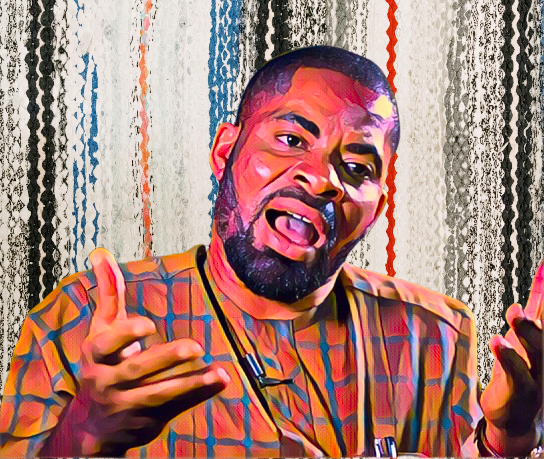Following the conclusion of nationwide protests across Nigeria, Deji Adeyanju, a prominent activist and legal representative for the demonstrators, announced the release of 26 protesters and journalists who had been detained by security forces. The protests, which took place in several major cities, led to the arrests of hundreds of participants, drawing widespread attention and concern.
Adeyanju, who has been at the forefront of advocating for the rights of the detained protesters, disclosed that efforts to secure the release of others still in custody are ongoing. In an interview, he revealed that the 26 individuals, including six journalists, were freed by the Nigeria Police Force and the Department of State Services (DSS) in Abuja. The release of these individuals marks a significant development in the aftermath of the protests, which have been characterized by clashes between demonstrators and law enforcement.
“We have managed to secure the release of 26 protesters, including six journalists,” Adeyanju stated. “These individuals were held by the Police and DSS in Abuja. The majority of those released were men, with only two women among them. All of these individuals were released unconditionally.”
Despite this progress, Adeyanju expressed concern about the large number of protesters who remain in detention across the country. He highlighted that, while the situation in Abuja has seen some improvement, many protesters are still being held in other regions, particularly in Kano, Lagos, Port Harcourt, Kaduna, and Jigawa. The exact number of those detained in these areas remains unclear, but Adeyanju emphasized that there are “hundreds” still in custody.
“We know of about 16 more protesters in Abuja who are still detained,” Adeyanju continued. “In other areas, particularly Kano, Lagos, and Port Harcourt, the numbers are much higher. We are working to ascertain the exact number of detainees, but it is challenging given the widespread nature of the protests and the arrests.”
The protests, which were sparked by various social and political grievances, quickly spread across Nigeria, leading to a significant response from security forces. The arrests of journalists covering the events have also drawn criticism, with many seeing it as an infringement on press freedom. Adeyanju confirmed that all the journalists known to have been detained have now been released, including six in the Federal Capital Territory (FCT) and Kaduna.
“We have secured the release of all the journalists we were aware of,” he said. “The last journalist to be released was freed four days ago. He was a support staff member working with one of the journalists. Their release is a positive step, but we remain focused on ensuring that all protesters are also released.”
Adeyanju expressed optimism that the security agencies would act reasonably and release the remaining detainees. He stressed that there was no legal basis for holding individuals who were simply exercising their right to protest, a fundamental right in any democratic society. In a bold move, Adeyanju announced that he and his team would issue a 48-hour ultimatum to the authorities, demanding the immediate release of all protesters. Failure to comply, he warned, would result in legal action.
“We are optimistic that the security agencies will see reason and release everyone in custody,” Adeyanju asserted. “They have no right to detain anyone for participating in a protest. We are giving them a 48-hour ultimatum to release all the protesters. If they fail to do so, we will take legal action against them for violating the rights of these individuals.”
The activist did not mince words when discussing the current administration’s approach to handling protests. He pointed out the irony of the President, who had once been known as a “perpetual protester” during his time in opposition, now overseeing what many perceive as an increasingly oppressive regime. Adeyanju criticized the President for allowing the detention of protesters, suggesting that this behavior was more in line with that of a tyrant than a democratic leader.
“The President, who was once a perpetual protester himself, has now become an oppressor,” Adeyanju remarked. “It’s sad and ironic that he is now fast becoming a tyrant, showing little regard for the fundamental rights of protesters in a democracy. This behavior stands condemned.”
He went on to call for the immediate and unconditional release of all protesters still in detention, urging the President to take swift action. Adeyanju argued that the President must instruct security agencies to release those in custody, stating that this was the “irredeemable minimum” that the administration should do without delay.
“The President should mandate the release of all protesters in custody unconditionally,” Adeyanju insisted. “This is the irredeemable minimum he should do, and it must be done immediately.”
In his final remarks, Adeyanju encouraged Nigerian citizens to remain vigilant and to hold their leaders accountable at all levels of government. He emphasized the importance of active citizenship in ensuring that the rights of the people are not trampled upon by those in power. According to him, it is the responsibility of every citizen to challenge any form of abuse or violation of rights, whether it occurs at the local, state, or federal level.
“Nigerians must hold their leaders accountable at all levels,” Adeyanju urged. “When citizens fail in their responsibility to hold leaders accountable, it gives those in power a free pass to violate and abuse their rights. Citizens must rise up and ensure that their leaders respect their rights, regardless of whether it is at the local, state, or federal level.”



